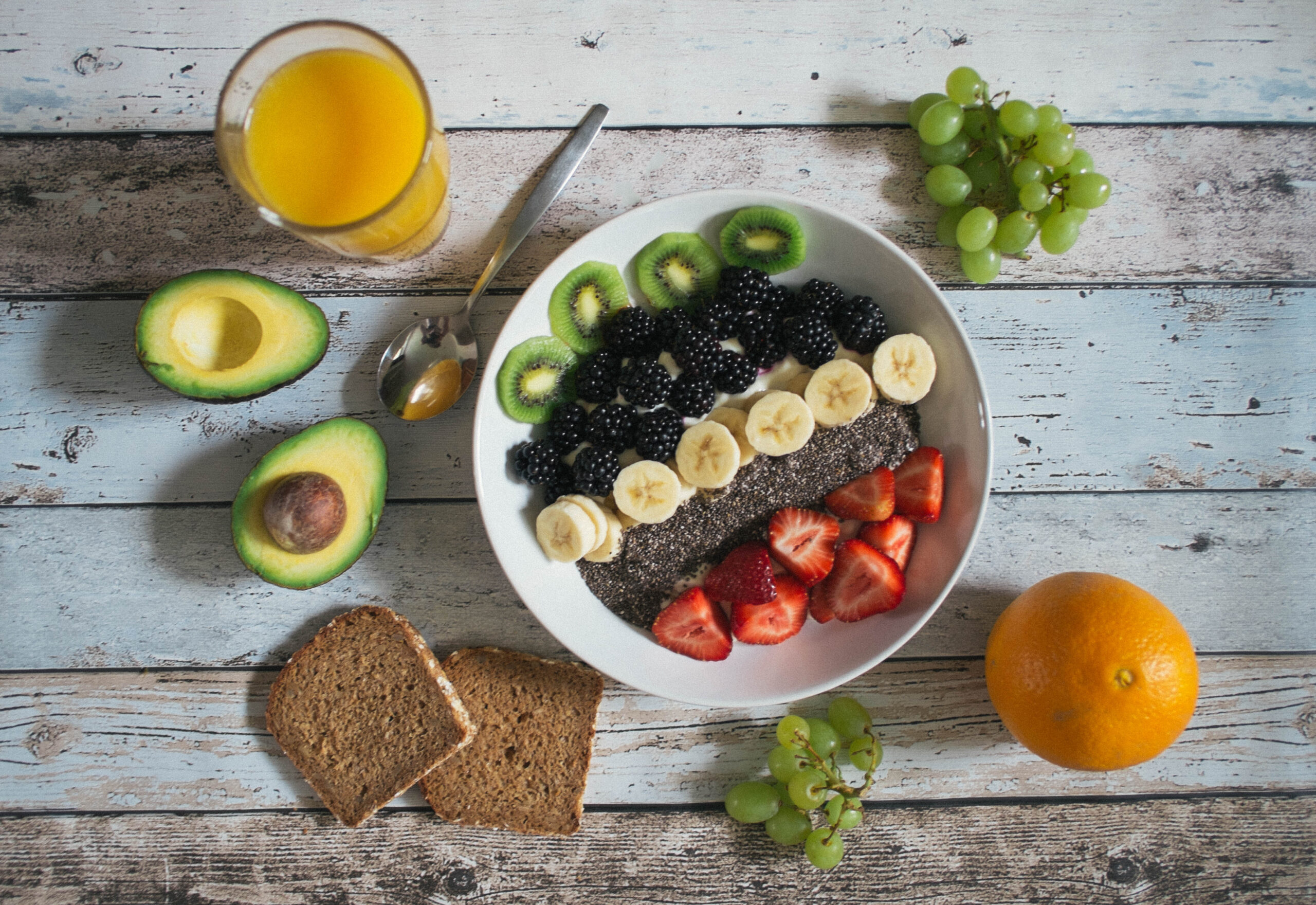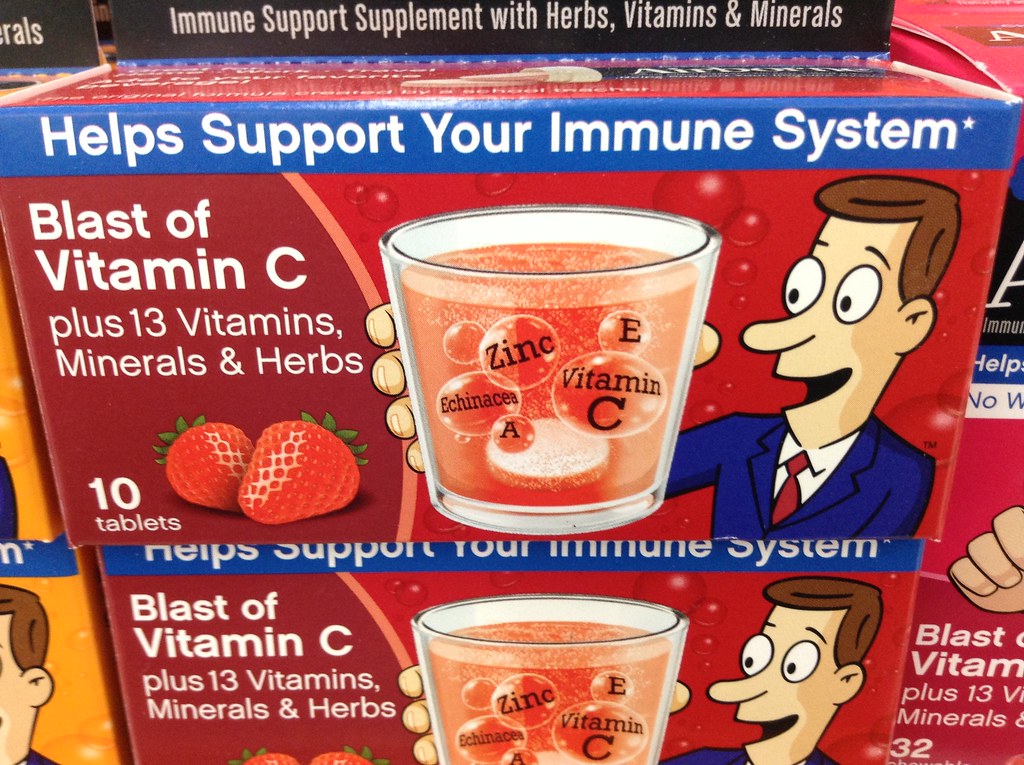
Alright, buckle up, health warriors! We all know our immune system is like that unsung superhero working tirelessly in the background, battling potential invaders before they even think about crashing your body’s party. It’s the ultimate defender, constantly on guard, making sure you stay feeling tip-top and ready to conquer the world – or at least your to-do list!
You might already be hip to the fact that keeping your immune system healthy is absolutely crucial for warding off challenges and preventing little issues from blowing up into big problems. And if you’ve been paying attention, you know there’s a super tight connection between your gut health and your immune power – we’re talking over 80% of your immune function chilling out in your gastrointestinal tract! But what you might not fully grasp is just how much of a heavyweight impact certain everyday foods and drinks can have on this vital system.
Especially with our modern Western lives already throwing stress, antibacterial cleansers, and antibiotic exposure at us, adding immune-unfriendly foods to the mix is basically an open invitation to feeling under the weather. Now, we can’t completely ditch *all* of life’s challenges (unless you’re planning to move to a remote, Wi-Fi-free island, which, honestly, sounds kind of tempting some days!). But what we *can* do is make smart, positive choices that empower our immune system to stay in fighting shape, and guess what? Your diet is arguably the best battlefield to start on. So, to arm you with the ultimate intel, we’ve gone deep into the research to uncover the absolute worst foods and drinks for your immune system. Consider this your essential guide to sidestepping the baddies and keeping your internal superhero well-fed and ready for action!

1. **Excess Added Sugars**: We’re kicking off this list with a big one, because let’s be real, who doesn’t love a sweet treat? But here’s the bitter truth: when it comes to your immune system, added sugar is like the arch-nemesis you never wanted. Experts are clear that limiting your intake of added sugar isn’t just good for overall health, it’s a direct power-up for your immune function.
Foods that send your blood sugar soaring, especially those packed with added sugars, actually crank up the production of inflammatory proteins. We’re talking about names like tumor necrosis factor alpha, C-reactive protein (CRP), and interleukin-6 (IL-6). Sounds like a villain squad, right? Well, these proteins unfortunately throw a wrench into your immune system’s delicate machinery, negatively affecting its ability to function optimally and keep you healthy.
This is particularly crucial for individuals dealing with diabetes, as their bodies already face challenges with blood sugar regulation. For them, foods loaded with added sugar can cause blood sugar levels to remain elevated for much longer after a meal compared to those without the condition. But even for those without diabetes, high blood sugar levels can seriously impact how your white blood cells—the crucial defenders of your immune system—respond, forcing them to work overtime to protect you from infections.
And if that wasn’t enough, consistently high blood sugar levels can also mess with your gut barrier function, leading to imbalances in your gut bacteria. When your gut microbiome is out of whack, it can alter your immune response and leave your body more exposed and vulnerable to infections. This isn’t just a theory; many studies have consistently linked elevated blood sugar to a compromised immune response in people, whether they have diabetes or not.
Oh, and one more thing: diets heavy in added sugar might even increase your susceptibility to certain autoimmune diseases, like rheumatoid arthritis, in some populations. So, next time you’re eyeing that extra scoop of ice cream, that slice of cake, or another sugary drink, remember the bigger picture. Cutting back on these sweet culprits can genuinely boost your overall health and keep your immune system functioning like the superhero it’s meant to be!
Read more about: Fueling Clarity: The 12 Snacks CEOs Absolutely Avoid for Sharp Decision Making and Energy

2. **Fast Food**: Ah, fast food. The siren call of convenience and a quick fix for those hunger pangs. We all have that moment when a burger and fries just *sounds* like the perfect idea, right? We know it’s not exactly a health food, but surely a little bit here and there won’t totally derail our immune system, will it? Well, unfortunately, the research strongly suggests that regularly indulging in fast food can actually do some pretty wild things to your immune system, essentially reprogramming it.
Imagine your immune system as a highly trained security guard. Regular fast food consumption can put that guard in a prolonged state of “high alert,” constantly on edge for potential issues. This isn’t a good thing; it means your system is overworking itself, burning through resources, and potentially causing unwanted changes in your health. One fascinating study highlighted this, showing that mice on a high-sugar, low-fiber diet developed physical responses similar to fighting off microbial invaders within a month.
Even when they switched back to a healthier diet, their immune systems stayed in that “ready to react” stage. Constantly being “on alert” for every little thing is incredibly taxing on your immune system. That burger and fries might taste good in the moment, but the long-term impact on your immune system could genuinely come back to bite you down the line, affecting its ability to fend off actual threats.
And if the internal reprogramming wasn’t enough to make you pause, consider this: fast food can also come with some hidden nasties. Studies have found that fast food may contain phthalates, a chemical that can leach into your food from packaging or plastic gloves used during preparation. Phthalates are known endocrine disruptors, meaning they can mess with your body’s hormone-producing system. And when your hormones are out of whack, guess what suffers? Yep, your immune system. It’s a double whammy of trouble in that convenient package.
The good news is, you can totally get your fast food fix at home, and honestly, it usually tastes way better! Think high-quality, organic beef burgers and baked sweet potato fries. Or, to completely avoid the temptation of that drive-thru, keep healthy snacks like kale chips, smoothies, nuts, or healthy bars in your car. Your immune system (and your taste buds!) will thank you.
Read more about: Fueling Clarity: The 12 Snacks CEOs Absolutely Avoid for Sharp Decision Making and Energy

3. **Foods with MSG**: Monosodium Glutamate, or MSG, is that flavor wizard that gives food that irresistible umami taste – the savory “fifth taste” that makes so many dishes incredibly satisfying. It’s a common shortcut in many restaurant foods and processed items to amp up the deliciousness factor. However, while your taste buds might be doing a happy dance, your immune system might be giving you a serious side-eye.
Studies have really started to shed light on some pretty harsh effects MSG can have on your body’s defense mechanisms. Research indicates that chowing down on foods containing MSG can lead to some unwelcome changes in your thymus and spleen. These aren’t just random organs; they are absolute VIPs in your immune function. Both your thymus and your spleen are crucial for producing lymphocytes, which are like the elite special forces of your immune system.
So, what exactly does MSG do to these vital organs? It causes significant oxidative stress to both the thymus and the spleen. Think of oxidative stress as rust on important machinery – it disrupts their ability to function properly. This means they might start producing fewer lymphocytes, and even the ones they do produce might not be working at their full capacity. The result? You could become more prone to immune overreactions or, conversely, less able to mount an effective defense when a real threat emerges.
Adding insult to injury, MSG also throws off your levels of interleukin, which is a key signaling molecule. Interleukins are like the communication network of your immune system, helping to modulate and coordinate its responses. When that network is disrupted, your immune system can’t communicate as effectively, leading to a less organized and less efficient defense.
Now for the silver lining: these changes *do* appear to be reversible if you manage to cut MSG out of your diet. The catch? Studies suggest it can take a significant amount of time, sometimes a long time, to fully repair the damage to your spleen. For that delightful umami flavor, you can absolutely go natural! Think rich meat broths, savory mushrooms, high-quality cheeses, or fermented foods. Your taste buds will still be happy, and your immune system will be doing a victory dance.
Read more about: Fueling Greatness: The 7 Foods Tom Brady Absolutely Avoids for Peak Performance and Longevity

4. **Alcoholic Beverages**: Let’s be honest, who hasn’t enjoyed a celebratory drink or unwound with a glass of wine after a long week? But have you ever noticed that you might be more susceptible to catching a bug if you’ve had a few too many? It’s not just your imagination or a case of the “drank too much and didn’t sleep well” blues; alcohol genuinely has some impactful effects on your immune system that you’d probably rather do without. It’s a bit of a party pooper for your body’s defenses.
Alcohol has a multi-pronged attack on your immune function. For starters, it can reduce the efficiency of your macrophages – these are the big eaters, the cells responsible for literally breaking down and clearing out foreign invaders. If your macrophages are slacking, those invaders get a much easier ride. On top of that, alcohol can mess with your immunoglobulin and cytokine levels. Immunoglobulins (antibodies) are crucial for identifying and neutralizing threats, while cytokines are signaling molecules that direct immune responses. When these are out of balance, your immune system’s communication and targeting abilities take a hit.
But wait, there’s more! Alcohol can also impair the production of T cells and B cells. These are the specialized “first responders” and memory cells of your adaptive immune system, learning to recognize and swiftly combat specific pathogens. If their production is hampered, your body’s ability to mount a specific, effective defense against viruses or bacteria is severely compromised.
And as if that wasn’t enough, drinking alcohol can play havoc with your hormones, directly disrupting your circadian rhythm. That’s your body’s natural sleep-wake cycle. Ever woken up in the middle of the night after drinking? That’s your circadian rhythm being thrown off balance. Why is this a big deal for your immune system? Because your sleep cycles and immune function are incredibly intertwined. Lack of quality sleep can leave your immune system feeling sluggish and less effective.
While these more severe effects are often most apparent in individuals who regularly drink to excess, it’s important to understand that even moderate drinking can temporarily lower your immune function. This is especially true if you’re downing several drinks back-to-back rather than spreading them out over a longer period. The key takeaway? If you’re going to drink, opt for options like wine and beer – some studies even suggest moderate consumption of these might offer a slight boost. Crucially, always alternate your alcoholic beverages with glasses of water to stay hydrated and keep things balanced.
Read more about: New Road Ahead: Unpacking 14 Crucial Driving Law Changes in Key US States for the Coming Year

5. **Excess Caffeine**: For many of us, that morning cup of coffee or tea is practically a sacred ritual, the non-negotiable kickstart to our day. And let’s be fair, caffeine absolutely has its perks, including making our mornings brighter and boosting our focus. But just like anything good in life, too much of a good thing can have some surprising and unwelcome effects on your immune system. That energy surge you love? It might be a double-edged sword, especially when it comes to a crucial stress hormone.
The stimulating jolt that helps you shake off the morning grogginess can also come with a less-than-pleasant side effect: elevated cortisol levels. Cortisol is often dubbed the “stress hormone,” and while it’s vital for your body’s “fight or flight” response, chronically high levels are bad news. High cortisol can mess with your metabolism, impact your mood, and, critically for our discussion, it can actually lower your immune function.
Furthermore, regularly consuming significant amounts of caffeine may make it harder for your body to stay well by directly impacting key immune cells. It can reduce the number of T cells your body produces – these are fundamental for identifying and fighting off infected cells. It can also suppress the overall function of your lymphocytes, which are the main types of immune cells involved in adaptive immunity. And to add to the list, caffeine has been linked to lowering your interleukin production, those vital signaling molecules that help orchestrate your immune response.
Beyond these direct cellular impacts, there’s the whole sleep angle, which is a huge deal for immune health. While coffee and tea are known for their antioxidants that *can* support the immune system by reducing inflammation, the caffeine in them can also interfere with your sleep quality. Numerous research studies have strongly linked quality sleep with optimal immune function. If caffeine is consistently keeping you from getting solid, restorative rest, your immune system isn’t getting the crucial downtime it needs to recharge and prepare for its daily battles.
So, does this mean you have to bid a tearful farewell to your beloved cup of Joe? Not necessarily! The key, as with so many things in health, is moderation and awareness. Be mindful of how much caffeine you’re actually getting in a day. You might be surprised to find it lurking in unexpected places like chocolate, certain sodas, some cereals, and even various medications! You could also consider switching to lower-caffeine alternatives, like tea, which still offers those beneficial antioxidants. Remember: a little caffeine can be a friend, but too much can make your immune system feel a bit… wired and tired.
Read more about: Fueling Clarity: The 12 Snacks CEOs Absolutely Avoid for Sharp Decision Making and Energy
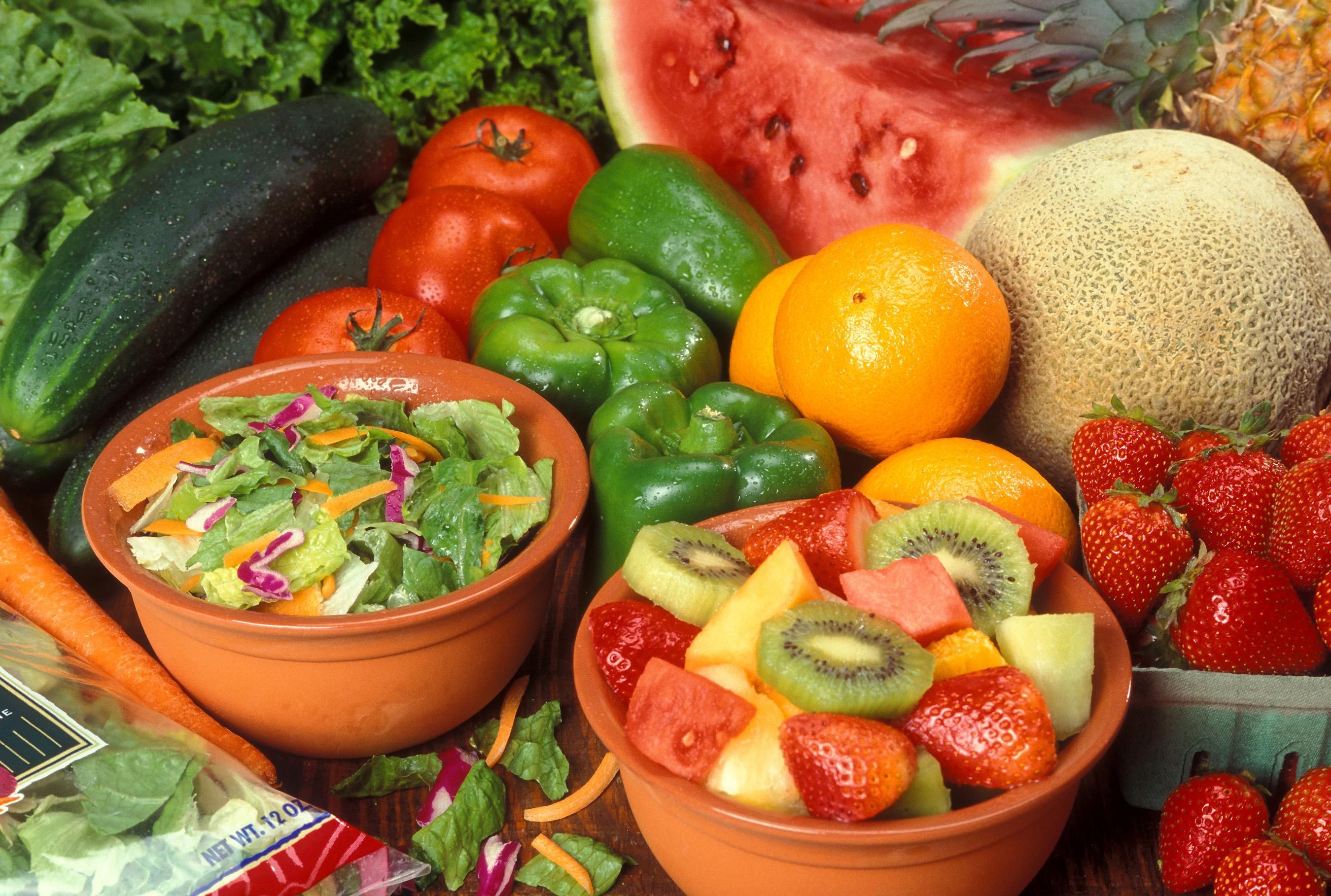
6. **Pesticide-Laden/Falsely Ripened Fruits and Vegetables**: Okay, here’s a twist you might not expect on a list of “worst foods.” Fruits and vegetables! But before you gasp, let’s be clear: a diet rich in a variety of colorful fruits and vegetables is absolutely fundamental for good health and, critically, for a thriving immune system. Nutritional experts might debate other foods, but this advice is a constant. The issue here isn’t the produce itself, but *how* it’s produced and ripened.
To understand why, we need to dive back into the amazing world of your gut microbes. Your gastrointestinal tract is practically a bustling metropolis of immune cells, housing over 80% of your body’s immune function. And within this metropolis, beneficial gut microbes, often called probiotics, are the unsung heroes. They tirelessly work to fortify your gut barrier, which is that crucial layer of cells forming your intestinal wall. Think of it as your internal security fence, keeping out undesirable bacteria, antigens, and environmental toxins.
But here’s the rub: these beneficial bacteria can only do their amazing work when you have enough of them, and maintaining their numbers can be surprisingly tough in our modern world. Things like antibiotics (in food or medication), harsh cleansers, and even lack of sleep can decimate their populations. That’s where a high-veg diet normally swoops in to save the day, because many fruits and vegetables are bursting with prebiotic fiber, which is essentially gourmet food for your beneficial probiotics.
So, why are some fruits and vegetables making this “worst” list? It comes down to their journey from farm to plate. Produce that’s picked before it has had a chance to naturally ripen often contains high levels of lectin. This substance naturally decreases as the plant matures and changes color. While lectin is useful for the plant, it’s less than ideal for us humans, as it can create conditions in your gut that interfere with your microbial balance, potentially weakening that crucial gut barrier we just talked about.
But there’s another layer to this: plants grown out of season are frequently doused with pesticides, and these chemicals are absolutely not friends with your gut microbiome. Research has demonstrated that some pesticides can directly alter the composition of your gut microbiome, leading to unwanted effects on immune function. These chemical invaders can also lead to negative changes in your metabolism and even your reproductive system. So, the next time you’re loading up your plate with a rainbow of beautiful vegetables, aim for organic, seasonal produce that has ripened naturally.

7. **Diet Soda & Artificial Sweeteners**: You’re trying to make healthier choices, so you swap out that sugary soda for a diet version, thinking you’re doing your body a favor, right? It seems logical – no sugar, no problem! But unfortunately, when it comes to your immune system and overall gut health, diet soda isn’t exactly the hero you thought it was. In fact, it’s often packed with a different kind of trouble: artificial ingredients, specifically sweeteners like aspartame, saccharin, and sucralose.
Here’s the lowdown: studies have consistently shown that these artificial sweeteners can actually reduce the levels of beneficial bacteria in your gut. Remember those superhero probiotics we just talked about? Well, artificial sweeteners can essentially act as bad landlords, making the environment less hospitable for your gut’s good guys. This reduction in beneficial bacteria is a big deal because a healthy, diverse gut microbiome is absolutely critical for a robust immune system. When the good bacteria dwindle, it leaves the door open for less friendly strains to take over.
What’s more, these artificial ingredients have been found to have an adverse effect on glucose metabolism. This might sound a bit technical, but it’s super important. Glucose metabolism refers to how your body processes sugar. When this process is disrupted, it has a cascading effect on how effectively your body can respond to potential threats and maintain overall health. An imbalance in glucose metabolism can contribute to inflammation and other issues that directly impact your immune system’s ability to perform its duties.
The evidence keeps mounting that artificial sweeteners induce glucose intolerance by altering the gut microbiota, leading to increased gut inflammation and lower health immunity. While the scientific community always calls for “more research,” the current data points strongly to ingredients like sucralose and saccharin causing gut bacteria imbalance. So, while they might spare you the calories and some of the immediate blood sugar spikes of real sugar, they introduce a whole new set of problems for your internal ecosystem and, by extension, your immune defense.
So, what’s a thirsty person to do on a hot day when plain water just isn’t cutting it? When it comes to truly quenching your thirst and supporting your immune system, nothing beats a refreshing, cool glass of filtered water. It’s the OG hydrator! But if you crave something with a bit more zing, get creative! Try adding slices of fresh fruit like lemon, lime, or cucumber to your water for a natural flavor boost. Or, for an antioxidant-rich alternative that’s actually beneficial, reach for a cup of green tea. Your gut microbes and your immune system will definitely send you a thank-you note!
Alright, immune-savvy readers, you’ve already crushed the first part of our mission, identifying some of the sneakier culprits messing with your body’s defenses. But our journey into immune health is far from over! We’re diving deeper into the pantry of peril, shining a spotlight on even more everyday foods and drinks that might be silently undermining your internal superhero squad. Get ready to arm yourself with more vital intel as we expose additional threats and, of course, dish out some deliciously better alternatives!
Read more about: Fueling Vision: The 14 Foods Ophthalmologists Strictly Limit for Optimal Eye Health and Clarity

8. **Products Containing Gluten**:Okay, gluten! It’s one of those buzzwords that often pops up on ‘worst foods’ lists, and trust us, there’s a solid reason why. This protein, naturally chilling in grains like wheat and barley, is notorious for being incredibly tough for your body to properly digest. It’s like trying to get a square peg into a round hole for your digestive system – just not a smooth ride!
As gluten makes its way through your system, it actually triggers your body to produce a protein called zonulin. Now, zonulin might sound harmless, but it’s basically the wrecker ball for your intestinal walls. It actively breaks down the cells that make up your gut barrier, which is supposed to be your body’s impenetrable fortress against unwanted invaders.
When your intestinal walls are compromised, it creates a leaky situation, giving toxins, undigested food particles, and other harmful substances a free pass to sneak into your bloodstream. And guess what happens when these unwelcome guests crash the party? Your immune system, bless its heart, kicks into an unwanted overdrive response, often leaving you feeling sluggish, unwell, and generally less than your best. It’s not just a problem for those with diagnosed gluten sensitivity; even people without a full-blown intolerance can experience uncomfortable gastrointestinal symptoms after indulging in gluten-containing foods.
So, what’s the game plan here? The good news is that the world of gluten-free options has exploded in recent years! You’ll find a fantastic array of gluten-free breads, pastas, and baked goods that are totally delicious. Plus, it’s super fun to get creative in the kitchen with naturally gluten-free foods like rice flour, oats, quinoa, and corn. Just remember to become a label detective – gluten has a knack for hiding in surprising places, including various condiments, certain dairy products, and even some candies! A little awareness goes a long way in keeping your gut happy and your immune system strong.
Read more about: Your Heart’s Best Friends and Worst Enemies: 15 Foods Cardiologists Say to Skip (Plus Healthier Picks!)

9. **Refined Oils**:Hold up, oil can be unhealthy? You might be thinking oils are all about those awesome omega-3s and vitamin E, and you’d be right – *if* they’re produced with care. Unfortunately, the vast majority of oils lining our supermarket shelves have gone through a process called refining, and that’s where things take a turn for the worse for your immune system.
The refining process is pretty brutal: it strips away all those fantastic nutrients that make oils beneficial in the first place, and even worse, it mutates the natural molecular structure of the oil. Imagine taking a perfectly good, wholesome ingredient and putting it through a shredder; you’re left with something that might look similar but has lost its integrity and inherent goodness.
When you cook with or consume foods made with these refined oils, you’re essentially putting a huge amount of stress on your entire system. This stress leads to the production of free radicals, which are unstable molecules that wreak havoc on your delicate tissues, causing cellular damage. This constant internal battle can trigger bouts of temporary inflammation throughout your body.
And guess who hates inflammation? Your immune system! All this free radical damage and chronic inflammation is seriously bad news for your immune function. It reduces your body’s ability to operate at peak performance, leaving you more susceptible to feeling unwell and less equipped to fend off actual threats. So, the lesson here is clear: not all oils are created equal when it comes to supporting your health.
To keep your immune system in fighting shape, swap out those refined oils for high-quality, cold-pressed versions. Think golden coconut oil, rich ghee, robust organic extra virgin olive oil, and creamy avocado oil. These aren’t just less likely to cause immune-related woes when you choose high-quality brands; they’re also brimming with other healthy nutrients that your body will absolutely adore. Your taste buds and your immune cells will be doing a happy dance!
Read more about: Fueling Vision: The 14 Foods Ophthalmologists Strictly Limit for Optimal Eye Health and Clarity
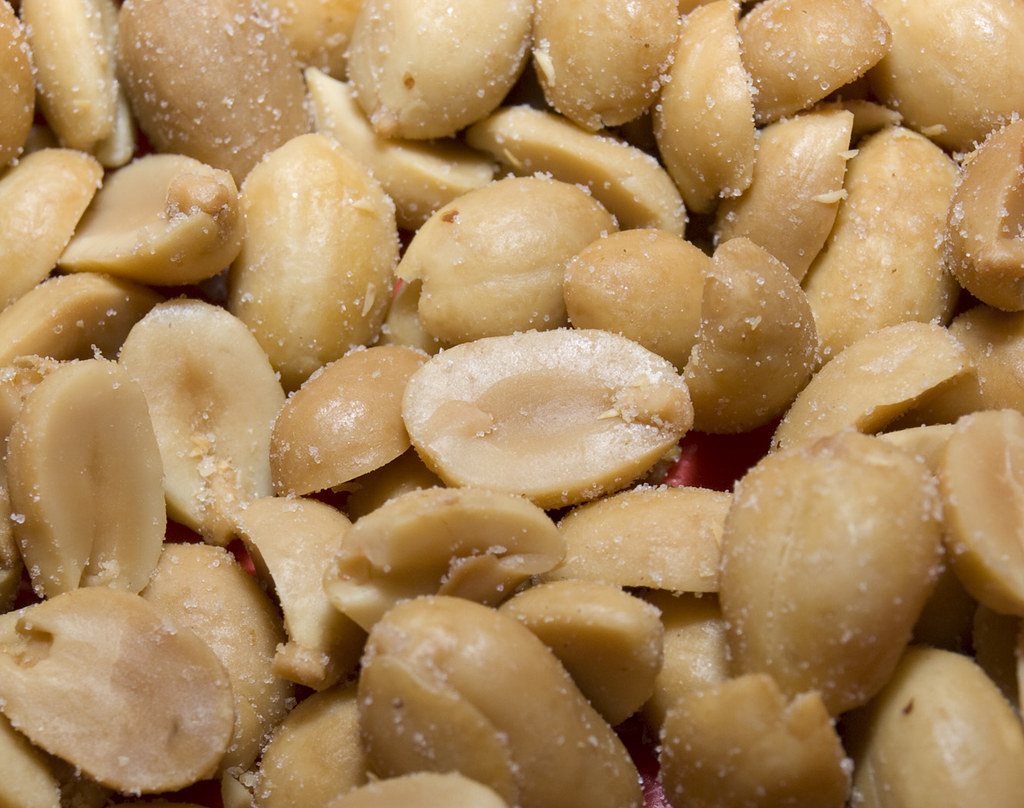
10. **Salty Foods**:Listen up, snack enthusiasts! It’s time for a little heart-to-heart about those irresistibly salty treats. Whether it’s a bag of your favorite chips, that super-convenient fast-food dinner, or a plethora of processed goodies, a high-sodium diet might just be the sneaky saboteur weakening your immune system. We often crave salt, but too much of a good thing can really throw your body’s defenses off balance.
Excessive salty food intake has been directly linked to disrupting your immune system’s ability to function properly. A 2018 review published in *Hypertension* even highlighted a strong connection between high sodium intake and increased inflammation, unwelcome changes in the gut microbiome (remember those crucial gut microbes?), and even alterations in your body’s adaptive immunity. Basically, your body’s ability to identify and fight off infections takes a serious hit when it’s overloaded with salt.
Think about it: when your immune system is working overtime dealing with the fallout from too much salt, it’s less available to tackle actual pathogens like viruses or bacteria. This leaves your body struggling to mount an effective defense, making you more vulnerable to getting sick and feeling run down. Most of us are eating way more salt than recommended, often without even realizing it.
So, what’s the move? It’s time to reduce your overall salt intake by being mindful of where sodium lurks. Cut back on obvious culprits like fast food, those addictive salty snacks, processed meats, and many canned goods. Instead, reach for snacks that nourish your body without the sodium overload. Think unsalted nuts, which offer healthy fats and protein, or homemade air-popped popcorn that you can season lightly yourself. Your immune system will breathe a sigh of relief!
Read more about: Fueling Clarity: The 12 Snacks CEOs Absolutely Avoid for Sharp Decision Making and Energy

11. **Foods High in Omega-6 Fats**:Let’s talk fats for a moment, because it’s all about balance, baby! Your body is a finely tuned machine, and it absolutely needs a healthy mix of both omega-3 and omega-6 fats to keep everything running smoothly. These aren’t just random fats; they’re essential building blocks for countless bodily functions.
However, here’s the kicker: the typical modern Western diet often gets this balance spectacularly wrong. It tends to be sky-high in omega-6 fats and sadly, woefully low in omega-3s. This isn’t just a minor imbalance; it’s a significant dietary shift that can have serious repercussions for your immune system.
When your diet is disproportionately high in omega-6 fats, it actively promotes the production of pro-inflammatory proteins within your body. You know how inflammation is often your immune system’s way of responding to a threat? Well, too much of this pro-inflammatory action, especially when it’s chronic, can put your immune system on a constant, exhausting high alert. This constant low-grade inflammation weakens your immune response, making it less effective when a real threat emerges.
So, the goal isn’t to demonize all omega-6s, but to achieve a better balance. To swing the pendulum back towards immune-supporting harmony, consciously incorporate more omega-3 rich foods into your diet. Think delicious salmon, tiny but mighty sardines, or plant-based powerhouses like chia seeds. These foods will help you recalibrate that crucial fat balance, empowering your immune system to function at its best without being constantly overwhelmed by unnecessary inflammation.
Read more about: The Truth About Cooking Oils: Which Ones Fuel Inflammation and How to Make Healthier Swaps

12. **Red and Processed Meats**:Okay, meat lovers, let’s chat about red meat and its highly processed cousins. While a good-quality, lean red meat can certainly find a place in a healthy, balanced diet (think iron and protein!), overdoing it, or regularly reaching for processed meats like bologna and hot dogs, might not be doing your immune system any favors. In fact, it could be quietly creating some long-term issues.
Here’s the science-y bit: when red meat is digested, certain gut bacteria get to work and create a substance called trimethylamine, or TMA. This TMA then travels to your liver, where it gets transformed into trimethylamine N-oxide, or TMAO. Now, studies have linked high levels of TMAO in the body to a potential increase in chronic inflammation.
This chronic inflammation is bad news for your immune system because it keeps it constantly preoccupied and overworked. Instead of being ready to defend against acute invaders, it’s tied up dealing with an ongoing internal issue. This prolonged state of stress can lead to a weakened immune response overall, making you more susceptible to illnesses and generally feeling below par. It’s like having your superhero team constantly battling minor skirmishes instead of being prepared for the big boss fight!
So, what’s a carnivore to do? It’s not about cutting out all red meat entirely, but about moderation and smart choices. Consider swapping some of your red meat meals for leaner protein sources, especially poultry. Chicken and turkey aren’t just versatile and delicious; they’re also excellent sources of vitamin B6, which is absolutely vital for the formation of healthy red blood cells, further supporting your overall vitality and immune function. Prioritizing quality and variety in your protein sources is a powerful move for your immune health.
Read more about: Fueling Clarity: The 12 Snacks CEOs Absolutely Avoid for Sharp Decision Making and Energy
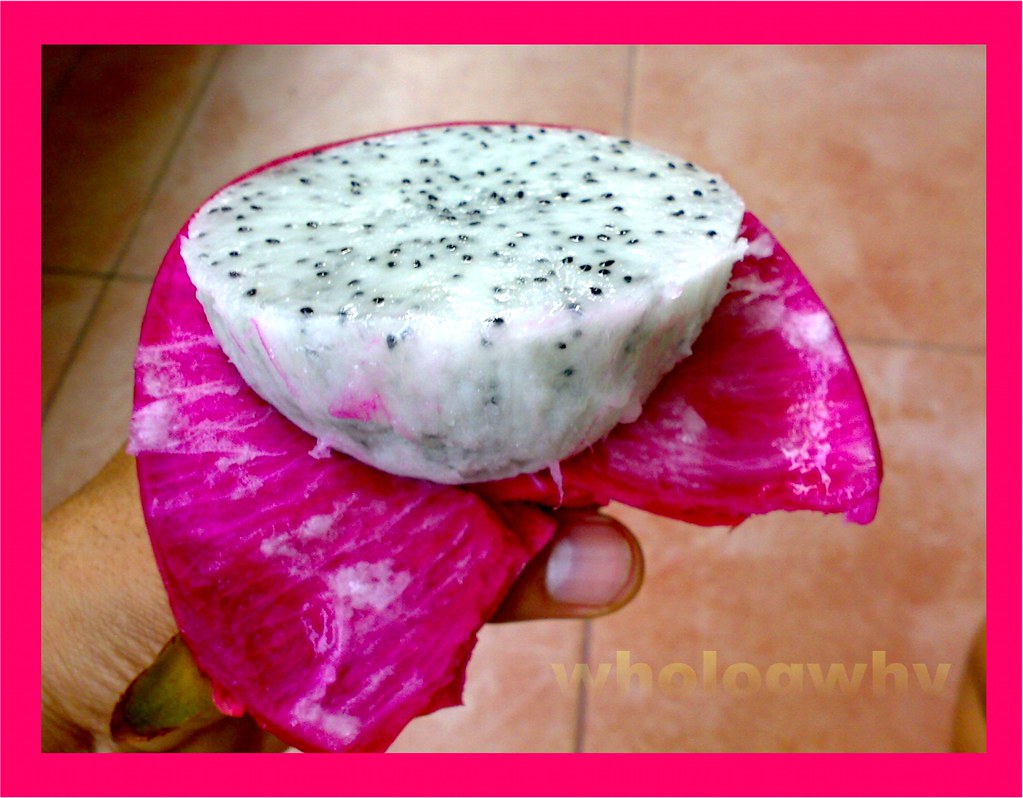
13. **High Fat Foods (Specifically Saturated Fats)**:Let’s clear the air about fats! Not all fats are created equal, and while some are absolutely essential for your health (hello, healthy omegas!), others, particularly high amounts of saturated fats, can throw a real wrench in your immune system’s finely tuned machinery. It’s a tricky balance, but one worth mastering for peak health.
A diet that’s heavy on saturated fats but skimps on beneficial unsaturated fats has been directly linked to immune dysfunction. What exactly does this mean for your body? Well, too much saturated fat can actually activate specific pathways that trigger inflammation. As we’ve discussed, while inflammation is a natural part of your immune response, chronic, unnecessary inflammation exhausts your system.
Beyond just inflammation, high saturated fat intake can also increase your likelihood of infection. How? It can actually weaken your white blood cells, which are the valiant defenders of your immune system. When these crucial cells aren’t operating at their best, it makes it significantly harder for your body to effectively fight off infections and keep you healthy. It’s like sending your superhero squad into battle with half their power!
So, the key here isn’t to fear all fats, but to be smart about your choices. A well-balanced diet that prioritizes sources of fiber (think fruits, veggies, whole grains) alongside healthy fat sources is your immune system’s best friend. Focus on incorporating unsaturated fats found in avocados, nuts, seeds, and olive oil, and keep those saturated fats in check. This strategic approach will give your immune system the fuel it needs to stay strong and resilient.

14. **Fried Foods**:Oh, fried foods! The crispy, savory, utterly irresistible indulgence that often calls our name. But before you dive headfirst into that basket of golden deliciousness, let’s have a quick chat about what those high-temperature cooking methods are doing behind the scenes, especially to your immune system. Spoiler alert: it’s not exactly a health spa experience for your insides.
Fried foods are notoriously high in compounds called advanced glycation end products, or AGEs. These intriguing compounds naturally form during cooking, particularly when foods are subjected to high temperatures, like, you guessed it, frying! While they contribute to that mouth-watering browning and flavor, their impact on your internal systems is far less appealing.
Research, including a 2020 article in *Nutrients*, has dropped some pretty compelling evidence linking AGEs to a less-than-optimal gut microbiome. We’ve talked about how vital a diverse and thriving gut is for your immune system, right? Well, AGEs can mess with that delicate balance, leading to increased inflammation and a weaker intestinal barrier. Imagine your gut’s security fence getting flimsy and letting all sorts of unwanted stuff slip through.
All of these factors—a disrupted gut microbiome, heightened inflammation, and a compromised intestinal barrier—collectively take a toll on your immune system. They leave it feeling exhausted and less capable of performing its essential duties, making you more vulnerable to all sorts of unwelcome health challenges. So, while that fried chicken might taste incredible in the moment, your immune system is definitely feeling the burn! For better alternatives, consider baking, roasting, or air-frying your favorite foods to get that crispy texture with far less immune-stressing AGEs.
Read more about: Fueling Vision: The 14 Foods Ophthalmologists Strictly Limit for Optimal Eye Health and Clarity
15. **Refined Carbohydrates**:Last but certainly not least on our list of immune-saboteurs are refined carbohydrates. We’re talking about those common culprits like white bread, pastries, sugary cereals, and many processed snacks. They might be convenient and tasty, but when it comes to nurturing your immune system, they’re often more foe than friend.
The primary issue with refined carbohydrates is that they are generally higher in sugar and have been stripped of their vital fiber content. Fiber is like the superfood for your healthy gut bacteria, providing the prebiotics they need to thrive and build that robust gut barrier that acts as your body’s first line of defense. Without sufficient fiber, your gut bacteria can’t flourish, and your gut barrier becomes less effective.
When your gut barrier is weakened, it’s like leaving the front door open for harmful bacteria and viruses to waltz right into your system, triggering an immune response that could have been avoided. Moreover, the higher sugar content in refined carbs can lead to rapid spikes in blood sugar, which, as we discussed earlier, fuels inflammation and impairs the function of your immune cells. It’s a double whammy for your internal defenses!
So, what’s the secret weapon here? Fiber, fiber, and more fiber! To empower your immune system and protect your gut, the key is to limit refined carbohydrates and consciously opt for dietary fiber instead. Load up on whole grains, legumes, fruits, and, of course, a rainbow of vegetables. These fiber-rich alternatives not only nourish your gut microbes and strengthen your gut barrier but also help stabilize blood sugar levels, keeping your immune system sharp and ready to tackle whatever life throws your way!
Read more about: Fueling Clarity: The 12 Snacks CEOs Absolutely Avoid for Sharp Decision Making and Energy
And there you have it, health warriors – your ultimate intel on the foods that might be silently undermining your immune system! Remember, this isn’t about perfection, but about making informed, positive choices that empower your body’s incredible defense mechanisms. Your immune system works tirelessly behind the scenes, and by nurturing it with wholesome, real foods, you’re setting yourself up for a life of vibrant health and boundless energy. So go forth, make smart choices, and keep that internal superhero well-fed and ready for action!


